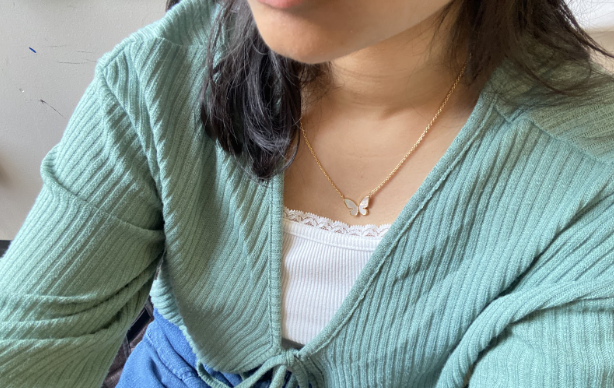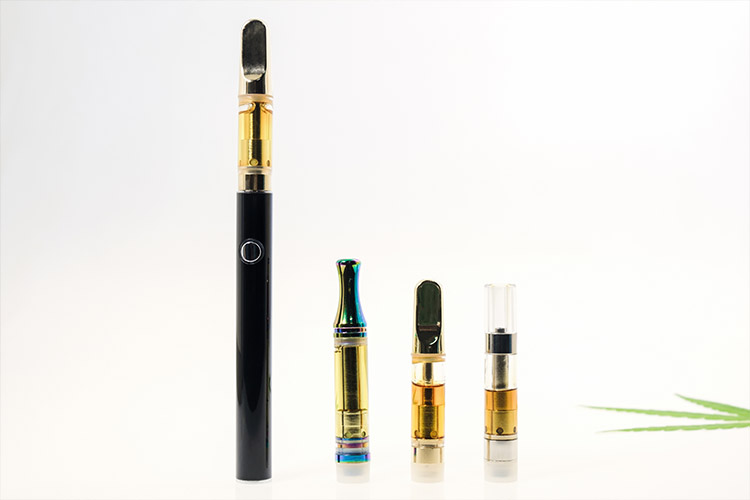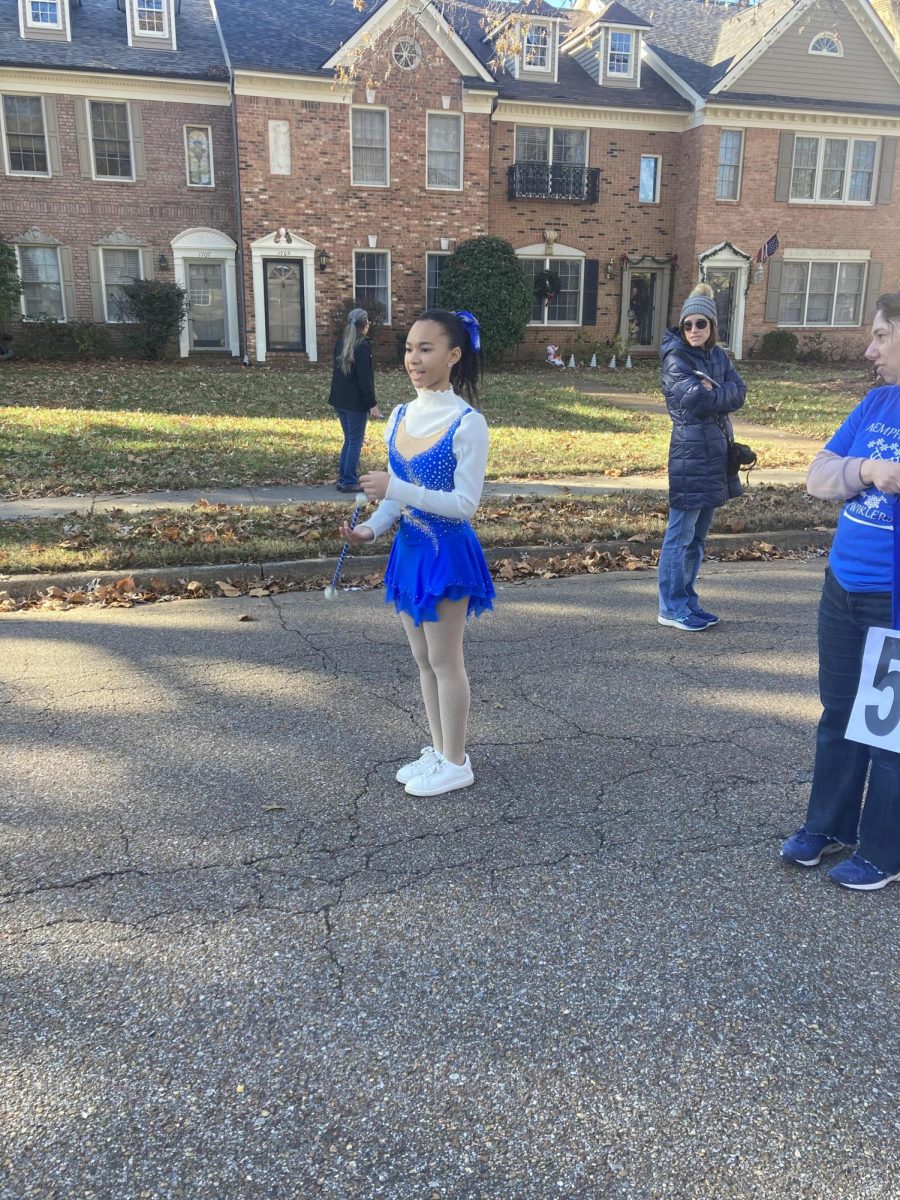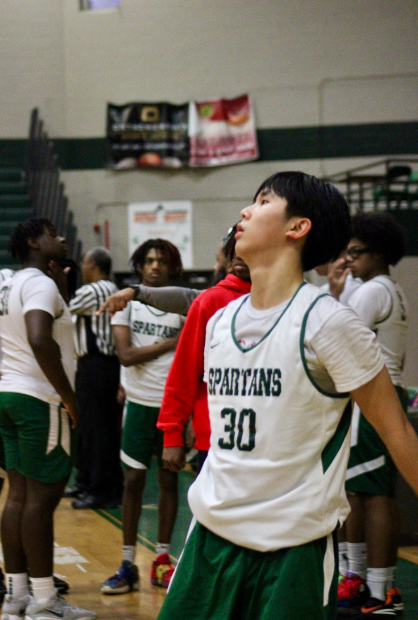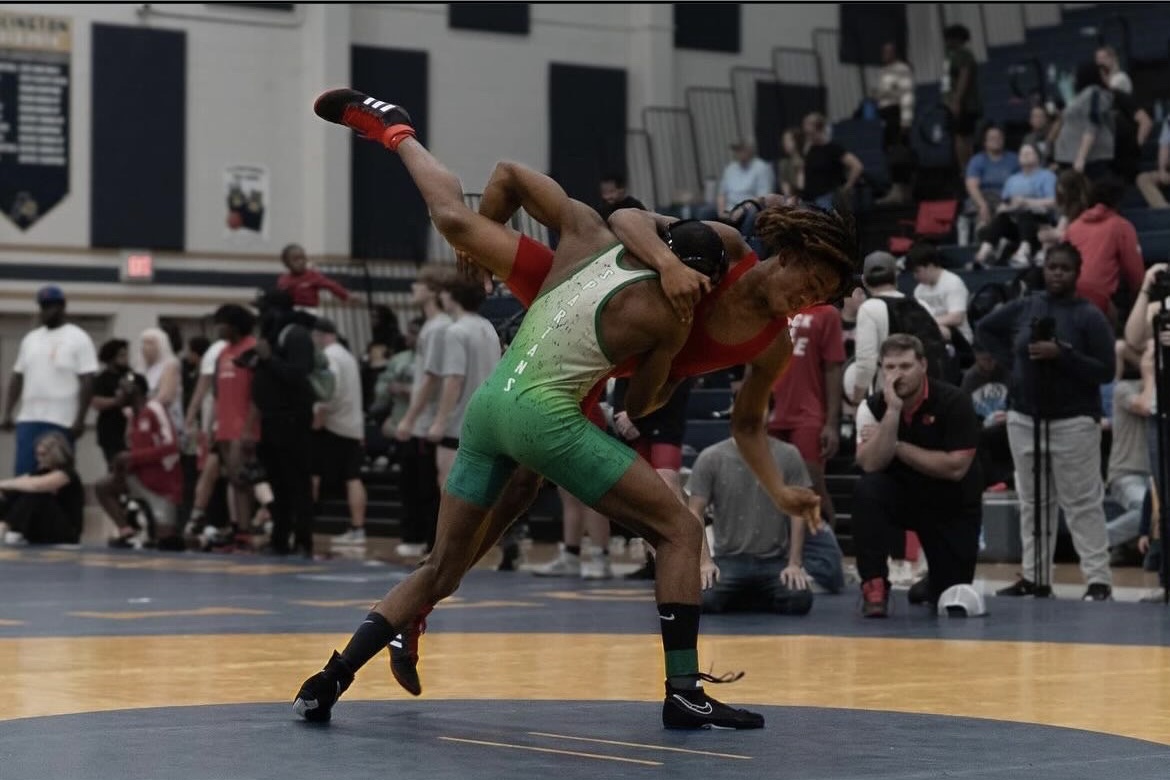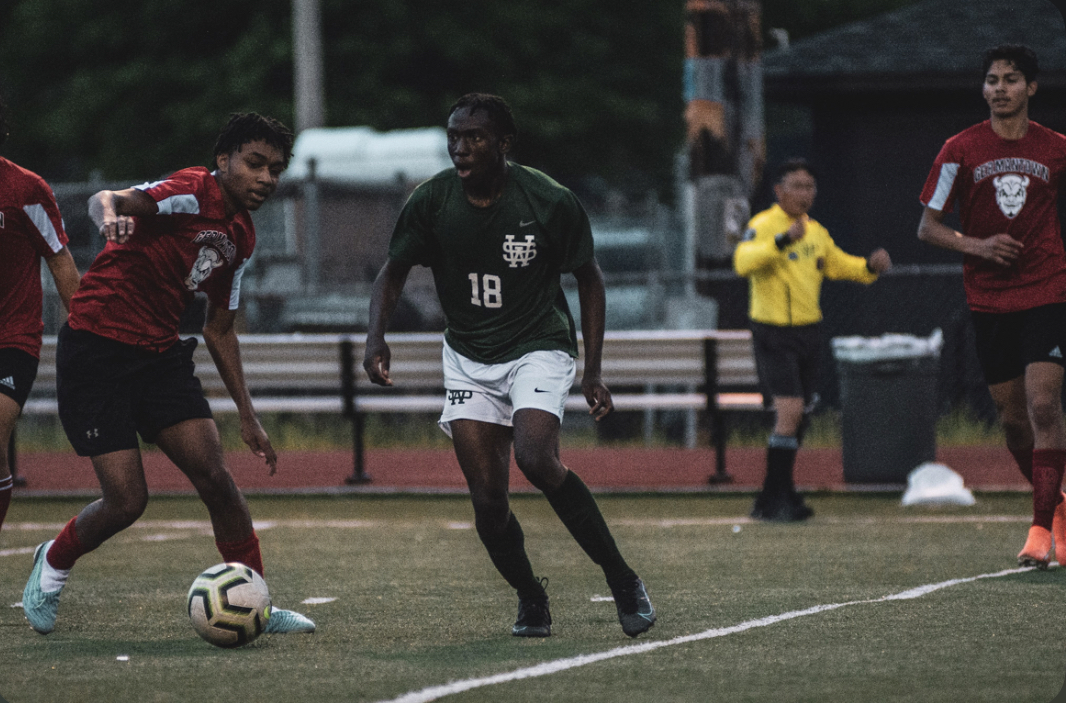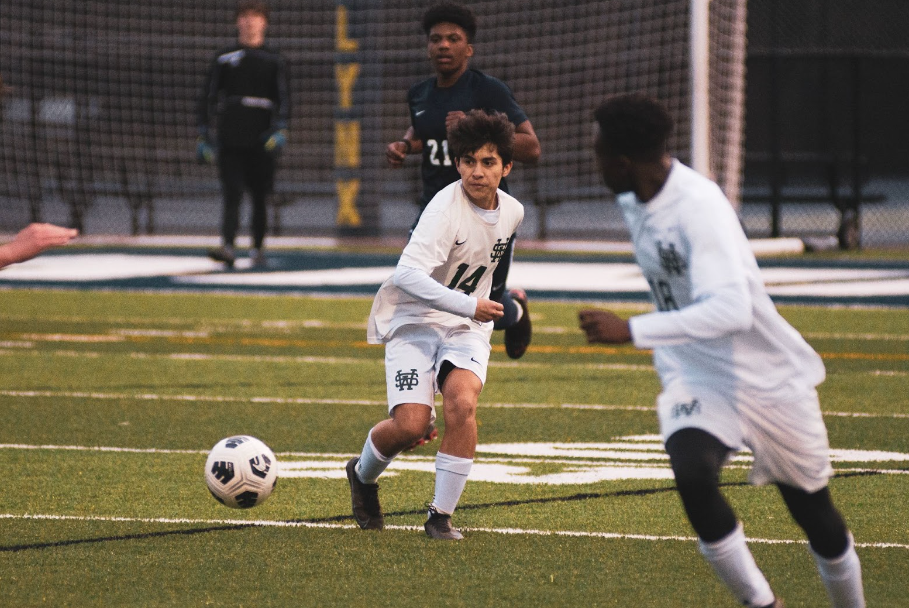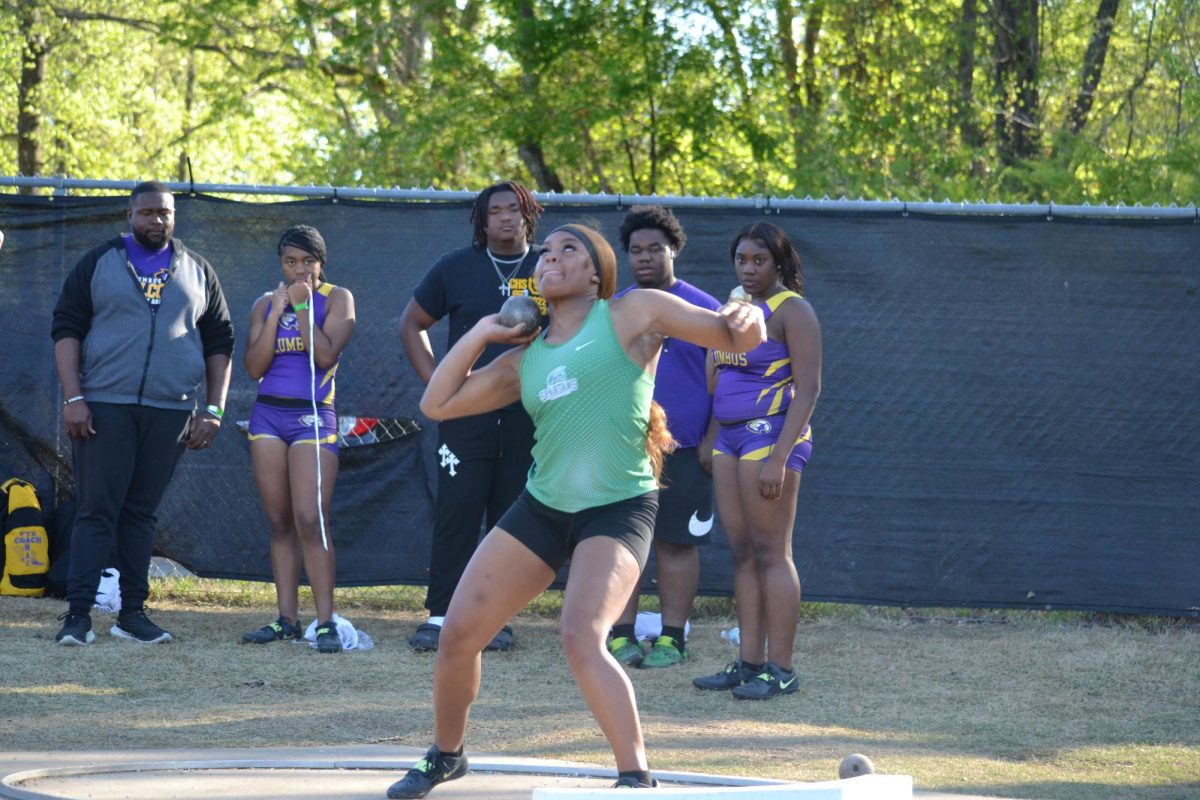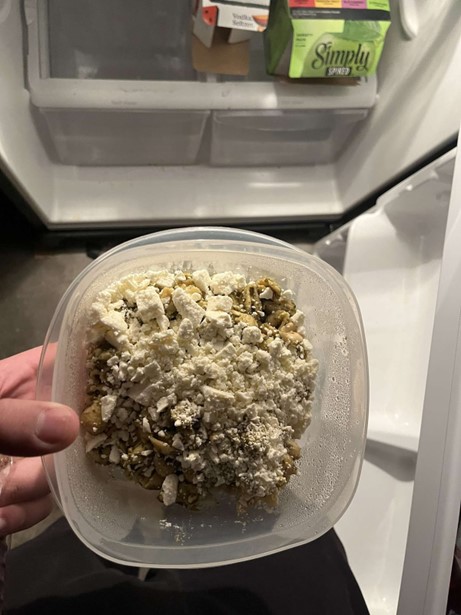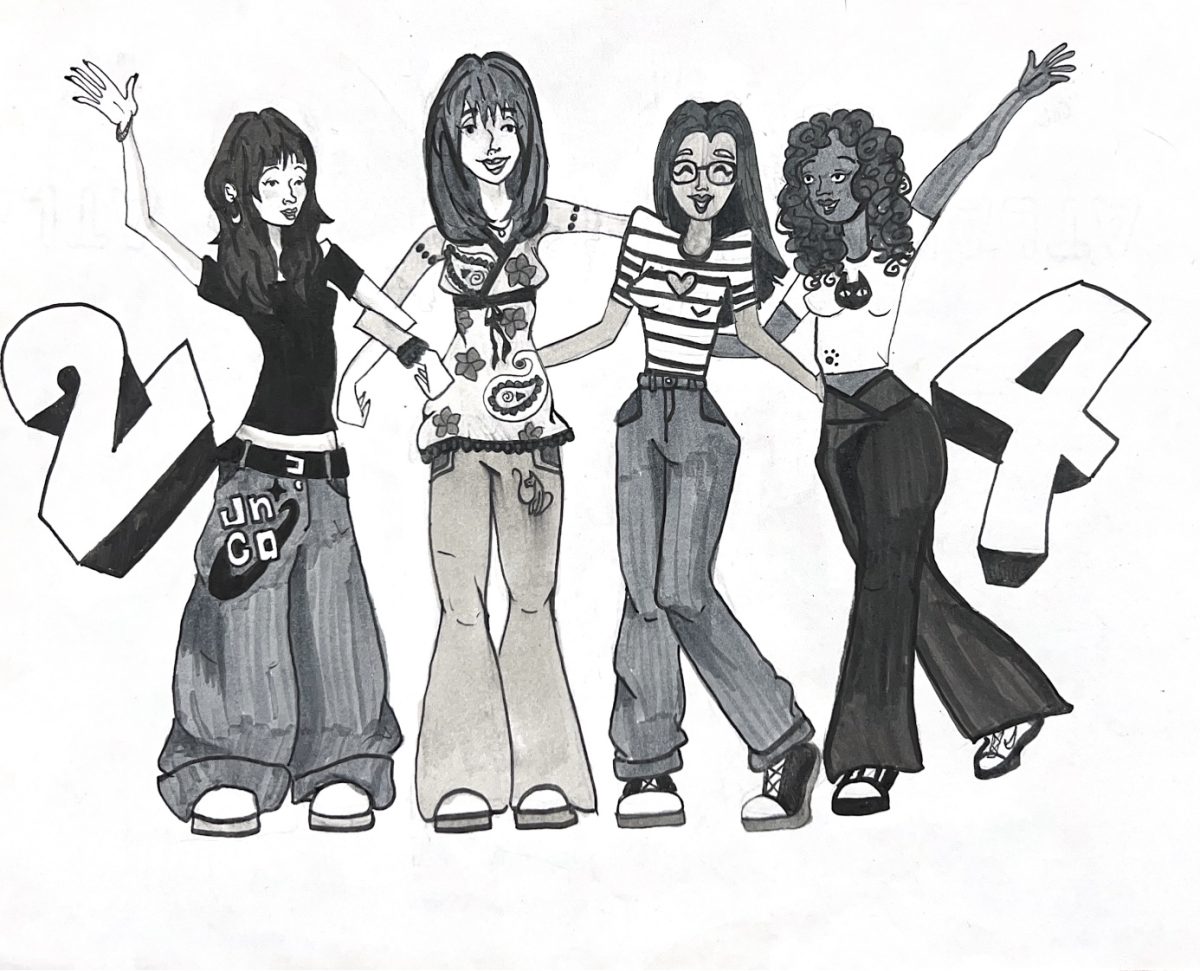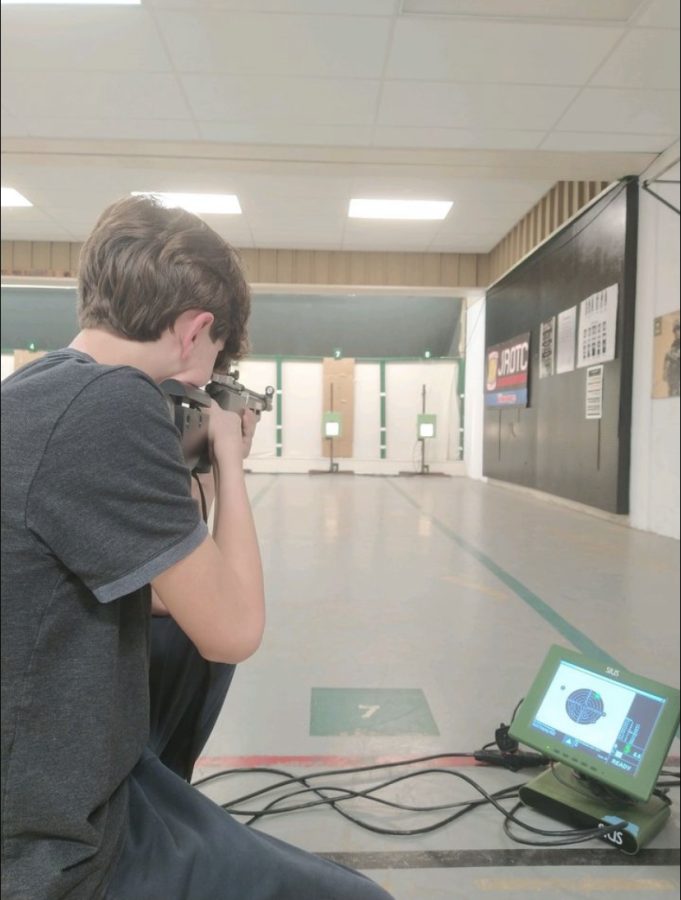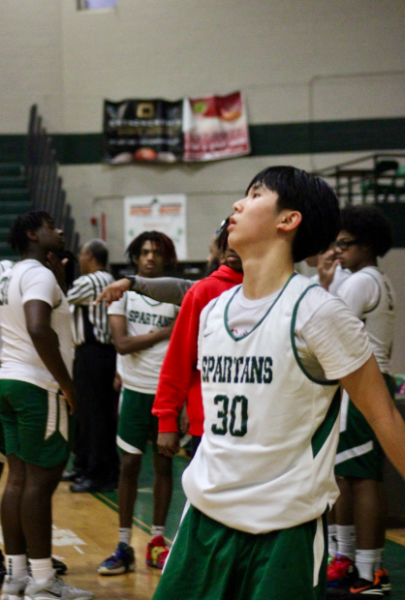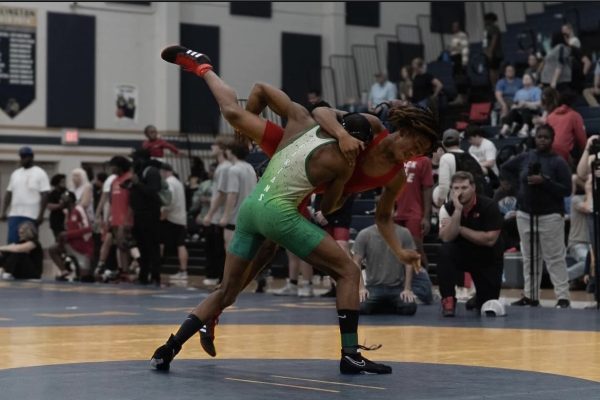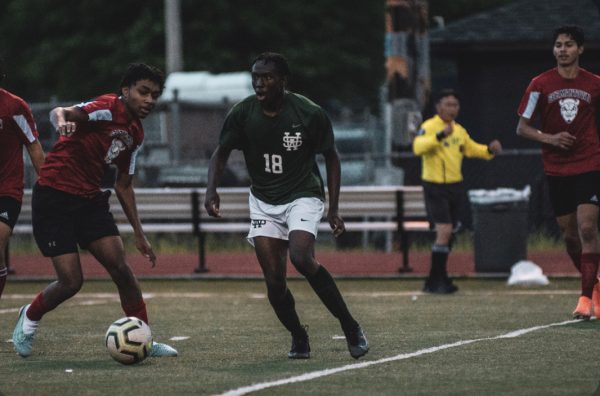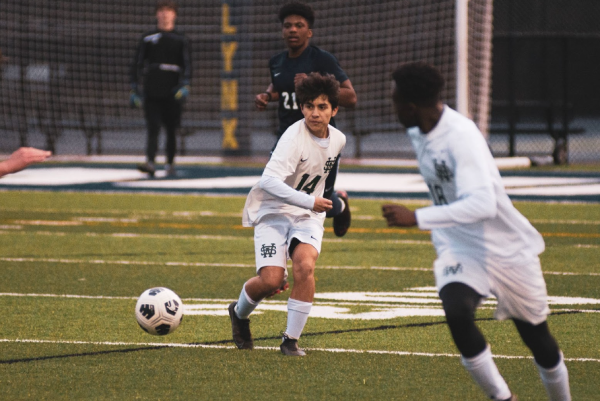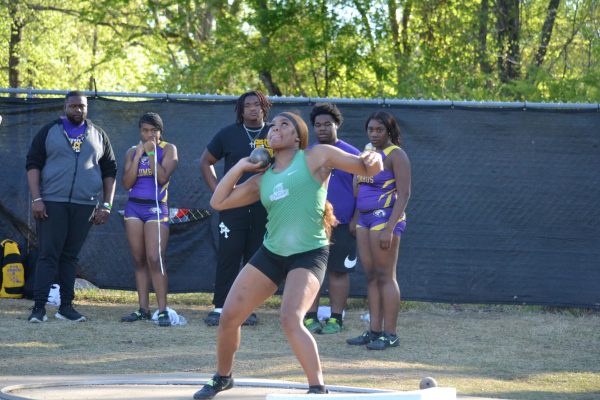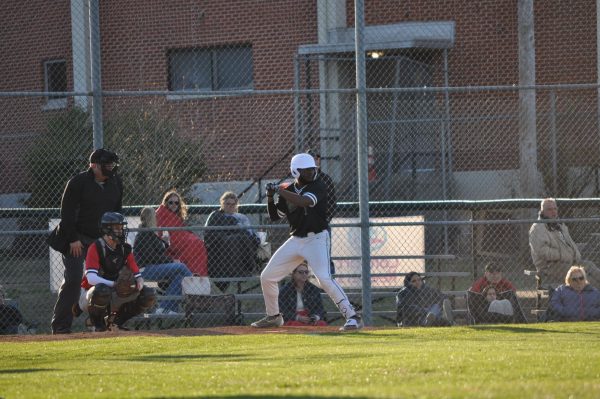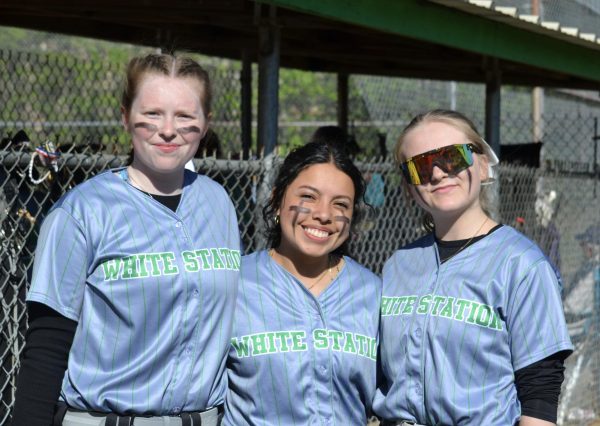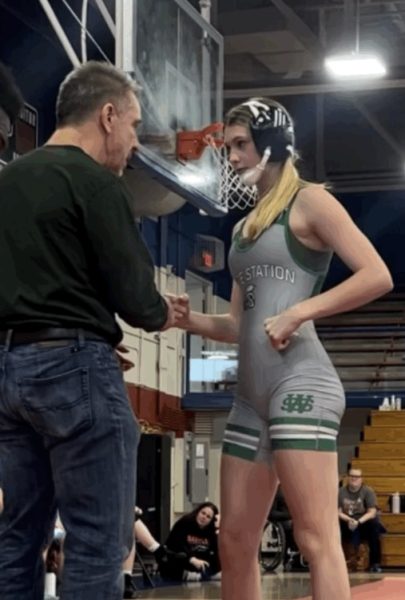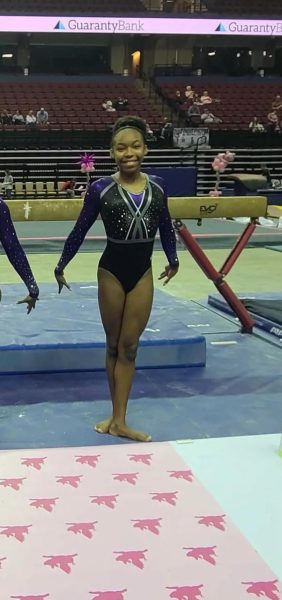Rifle team takes another shot
EMMA WEI//USED WITH PERMISSION
First year shooter Henry Chipley (9) finishes his last shot in the kneeling position, ending the first competition of the year.
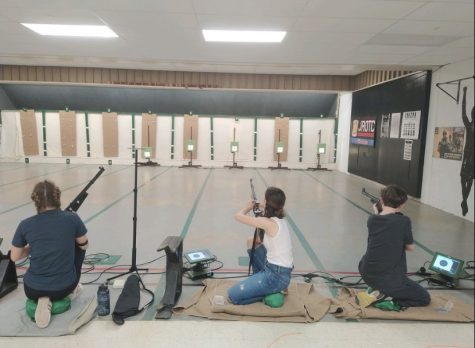
“Load and start,” the instructor yells. The pop of a rifle signals the start of the competition, and the JROTC Marksmanship Team, also known as the Rifle Team, uses air rifles to shoot from three different positions, standing, kneeling and prone (lying). Scores are tallied based on the nearness of a shot to the center of the target, similarly to archery or darts. This year the team began competing on Jan. 6, and will finish with the end of the third quarter. Compared to years past, the team is facing new challenges both with the equipment they use and with members of the team.
“Well, this is kind of a rebuild year for us because … of COVID,” team captain Becca Crislip (12) said. “We didn’t have new members and then two of them left, so we’re kind of back down to very few [returning] members.”
The team has found these challenges to be learning experiences. A grant from the Army allowed the team to replace previous paper targets with a new electronic system, and members are training to understand the system itself while also practicing to improve their skill.
“The new target system malfunctions often … but honestly, I feel like it’s easier to shoot on the new target system … when it works,” Crislip said.
The new targets allow the shooter to remain in one place, similar to how the Biathlon target system works, which helps improve accuracy. However, with paper targets, the shooter can redo a shot if it does not hit the target, but new regulations do not allow this.
“I think it is more stressful … solely because you can’t reshoot zeros,” Hallie Boland (11) said. “The fact that you can’t reshoot mistakes really messes with me at times.”
Despite this, the team has been seeing more improvements with each competition, partly because they have had more time to spend practicing. Last year, the team started practicing at a much later time in the year, and there were less opportunities to shoot. Members require hours of practice to perfect their accuracy, a skill that rarely comes naturally.
“Some people are actually good at it, but even naturally good isn’t … too good,” Crislip said. “The longer you do it, the better you get at it.”
The team practices twice a week, and members must be committed to improve their scores and ensure their placement on the team. With only four available spots on the team, members must have a consistent score between competitions and practices to ensure their place.
“In the first semester, it was very difficult to balance being in the theater production and … [attending] practices,” Boland said. “I was [only] able to go to like three in the first semester until after the show ended … not shooting high enough to be able to stay on the team [pressured me].”
Despite the competitive environment, the team maintains strong relationships between each other, which helps to relax the environment during competitions.
“It’s pretty silly,” Henry Chipley (9) said. “We make fun of each other …. [and] I make fun of everybody.”
The team competes in the city competition on March 8 and will join other Spartan JROTC teams and in Seventh Brigade on March 9. Teams from Kentucky, Arkansas, Tennessee, Southern Missouri, Alabama and Mississippi will join in Fort Knox, KY. to compete. In past years, the Rifle Team has presented well, winning over half a dozen times, but to be able to place well, the team must increase their score by over 60 points.
“We need … to [score] above 900 … because we were at … 840 yesterday,” Crislip said. ”Hopefully we get there by the end of the … regular competition season.”
Your donation will support the student journalists of White Station High School. Your contribution will allow us to purchase equipment and cover our annual website hosting costs.

